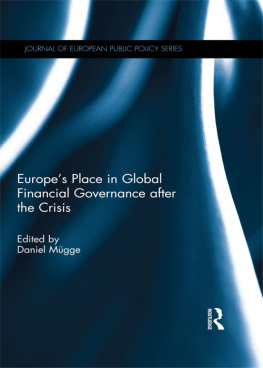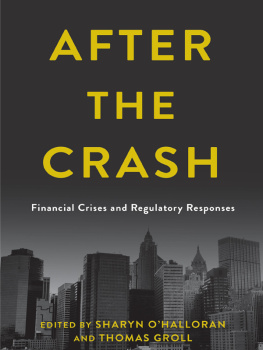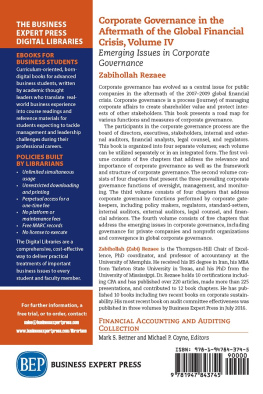(p.iv) 
- Oxford University Press is a department of the University of Oxford.
- It furthers the Universitys objective of excellence in research, scholarship,
- and education by publishing worldwide.
- OxfordNew York
- AucklandCape TownDar es SalaamHong KongKarachi
- Kuala LumpurMadridMelbourneMexico CityNairobi
- New DelhiShanghaiTaipeiToronto
- With offices in
- ArgentinaAustriaBrazilChileCzech RepublicFranceGreece
- GuatemalaHungaryItalyJapanPolandPortugalSingapore
- South KoreaSwitzerlandThailandTurkeyUkraineVietnam
- Oxford is a registered trademark of Oxford University Press
- in the UK and certain other countries.
- Published in the United States of America by
- Oxford University Press
- 198 Madison Avenue, New York, NY 10016
- Oxford University Press 2014
- All rights reserved. No part of this publication may be reproduced, stored in a
- retrieval system, or transmitted, in any form or by any means, without the prior
- permission in writing of Oxford University Press, or as expressly permitted by law,
- by license, or under terms agreed with the appropriate reproduction rights organization.
- Inquiries concerning reproduction outside the scope of the above should be sent to the
- Rights Department, Oxford University Press, at the address above.
- You must not circulate this work in any other form
- and you must impose this same condition on any acquirer.
- Library of Congress Cataloging-in-Publication Data
- Helleiner, Eric, 1963-
- The status quo crisis : global financial governance after the 2008 financial
- meltdown / Eric Helleiner.
- pages cm
- Includes bibliographical references and index.
- ISBN 9780199973637 (alk. paper)
- 1. International financeGovernment policy.2. Economic policyInternational
- cooperation.3. Global Financial Crisis, 2008-2009.I. Title.
- HG3881.H4183 2014
- 332.042dc23
- 2013048334
- 9 8 7 6 5 4 3 2 1
- Printed in the United States of America
- on acid-free paper
The Status Quo Crisis:
Global Financial Governance After the 2008 Meltdown
Eric Helleiner
(p.vii) Preface
The book has emerged from my experience participating in a large number of public, academic, and policy meetings concerned with international financial reform during and since the 2008 global financial crisis. Like many others in these meetings, I initially anticipated that global financial governance would be transformed in very significant ways in the immediate wake of this massive crisis. Indeed, some of my colleagues will recall that I was often quite a vocal proponent of this perspective in 20082009. Five years after the height of the crisis, I have come to a rather different view. The crisis has turned out to be much more of a status quo event at least so farthan a transformative one. This book explains how and why the widespread expectations of change did not pan out during the first half decade after the meltdown. I hope it serves as a useful record of this period as well as a helpful analysis of the politics of global finance in the contemporary era.
It is impossible for me to mention everyone who helped shaped my thinking for this book, but I am very grateful to all those asked helpful questions and commented on various presentations I made on these issues at the following locations in the last few years: American University, Brookings Institution, Centre for International Governance Innovation, Council on Foreign Relations, Columbia University, Cornell University, Hanse-Wissenschaftskolleg, Harvard University, the Hong Kong Monetary Authority, Kyung Hee University, London School of (p.viii) Economics, Montego Bay, New Delhi, Northwestern University, Oxford University, Princeton University, Rockefeller Foundation Bellagio Center, Royal Institute of International Affairs, Russell Sage Foundation, Shanghai Institute for International Studies, Southern Alberta Council on Public Affairs, St. Thomas University, University of Lethbridge, University of Oslo, University of Ottawa, University of Virginia, University of Western Ontario, and meetings of the American Political Science Association, Canadian Political Science Association, the International Studies Association, and Society for the Advancement of Socio-Economics.
For their insights and support, I also thank many colleagues at the University of Waterloo, the Balsillie School of International Affairs, the Centre for International Governance Innovation, the New Rules for Global Finance, the Warwick Commission on International Financial Reform, and the High Level Panel High on the Governance of the Financial Stability Board. I have also learned an enormous amount from a number of people with whom I have co-authored publications since the outbreak of the crisis, including Andy Cooper, Greg Chin, Stephanie Griffith-Jones, Jonathan Kirshner, Troy Lundblad, Anton Malkin, Bessma Momani, Stefano Pagliari, Tony Porter, Paola Subacchi, Jason Thistlethwaite, Ngaire Woods, and Hubert Zimmermann. I am also indebted to the many students who have offered fascinating perspectives on the global financial crisis in courses I have taught since 2008 as well as to Anastasia Ufimtseva for her very helpful research assistance. Many thanks, too, to the Trudeau Foundation and the Social Sciences Research Council of Canada for their generous support.
I am very grateful to Dave McBride for his insights, interest, and enthusiasm for this project. Many thanks as well to a number of people who commented directly on different parts of this book during its preparation in very useful ways: two anonymous reviewers, Diego Sanchez Anchochea, Cyrus Ardalan, Andrew Baker, Paul Blustein, Phil Cerny, Kevin Gallagher, Macer Gifford, Bill Grimes, Thomas Hale, Brian Hanson, Gerry Helleiner, Randy Henning, Nicolas Jabko, Emily Jones, Paul Langley, Walter Mattli, Kate McNamara, Steve Nelson, Stefano Pagliari, Rahul Prabhakar, Herman Schwartz, Jack Seddon, Hendrik (p.ix) Spruyt, Taylor St. John, Geoffrey Underhill, Jakob Vestergaard, Max Watson, Ngaire Woods, and Kevin Young. Of course, none of these individuals is responsible for the contents of this book.
Finally, this book could not have been written without the inspiration of some very special people. Zoe, Nels, and Jennifer are three of them. They have heard more about global financial governance than they probably ever wanted to in the last few years. Thanks to each of them for their patience about this and much else. And thanks particularly to Peter to whom this book is dedicated for being both a constant source of inspiration and such a helpful and supportive companion walking alongside me on this and many other journeys in our lives.
Waterloo, January 2014 (p.x)
(p.xi) List of Abbreviations
AIG
American International Group
ASEAN
Association of South-East Asian Nations
BCBS
Basel Committee on Banking Supervision
BIS
Bank for International Settlements
BRIC
Brazil, Russia, India, China
BRICS
Brazil, Russia, India, China, South Africa
CCP
central counterparty
CDS
credit default swap
CGFS
Committee on the Global Financial System
CMI
Chiang Mai Initiative
CMIM
Chiang Mai Initiative Multilateralization





